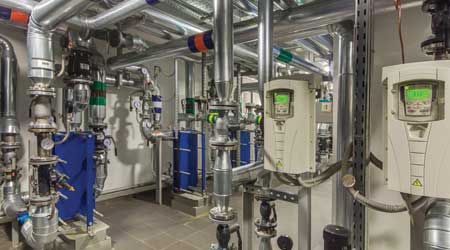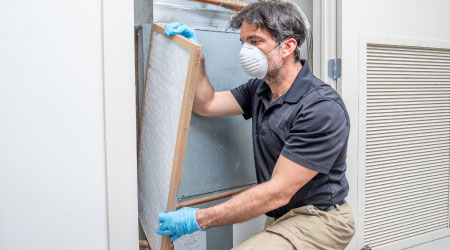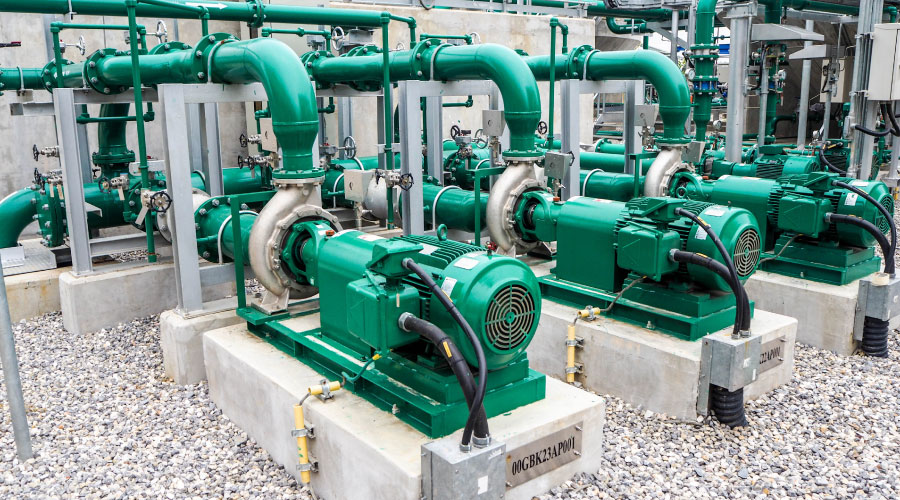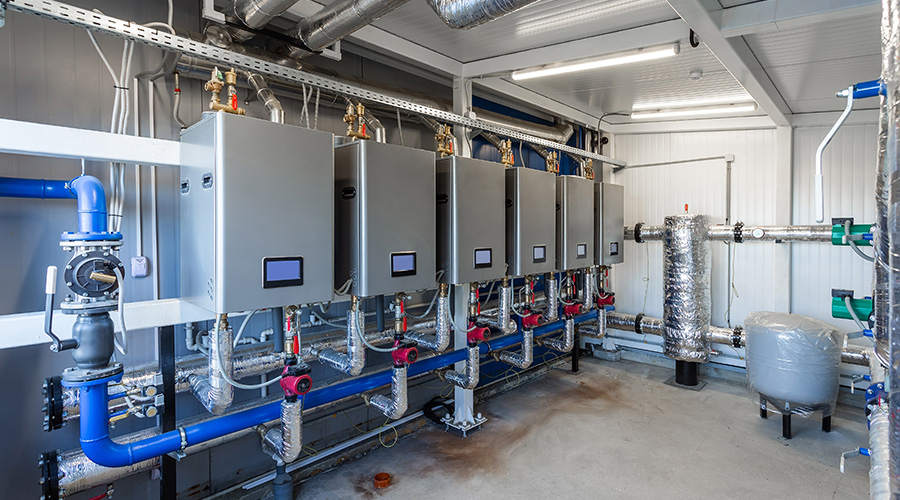Operations and Maintenance Considerations for Peak Boiler Efficiency
Cleaning and maintenance, retrocommissioning, and considering the configuration of a system: These are all important steps to getting long-term efficiency from boiler and water heater systems.
While reliability is the most important consideration when evaluating boilers and water heaters, the repair-or-replace decision is driven primarily by efficiency. It is the cost savings achieved through improvement in operating efficiency that guides that decision. Does the facility get a higher rate of return by maintaining the existing or by replacing it?
There is no question that a new boiler has a higher operating efficiency than one that is even 10 years old. Improvements in boiler designs and control systems are pushing seasonal operating efficiencies ever higher. Factor in small losses in operating efficiency due to normal wear and tear and aging, and managers can achieve significant increases in efficiency just by replacing a boiler. The question is whether the increases are sufficient to justify replacement.
To make a comparison, managers need to evaluate the performance of the installed unit. First, they can make certain the installed unit is free of easily corrected defects and operates properly. Following the manufacturer's recommendations, technicians should perform the following tasks:
Burner adjustment. Proper burner adjustment is essential for safe and efficient operation. Dirt and wear in the burner will change performance, as will variations in fuel pressure.
Control calibration. Proper boiler-control operation is essential for safety and performance. Technicians must test all safety controls and test the control system over the entire firing range to ensure it is properly configured.
Cleaning. Any type of buildup on the boiler’s heat-transfer surfaces, such as soot or scale, decreases operating efficiency, so technicians need to inspect and clean all surfaces as necessary.
Internal inspections. For large boilers, technicians should inspect all refractory material for cracks and erosion, and they should check tubes for erosion, corrosion, scale buildup, cracking and overheating.
Once technicians have inspected the boiler and corrected defects, managers can test the boiler efficiency following the manufacturer's recommended procedures. In most cases, the test will indicate the combustion efficiency of the boiler, and managers can compare it to data provided by the manufacturer when the boiler was new or to industry average figures. For example, older boilers have a typical combustion efficiency of 80-85 percent, while new condensing boilers typically have an efficiency rating in the 90-92 percent range.
If a manager finds that a boiler is still in good condition and operating fairly efficiently, consider retrocommissioning the unit rather than replacement. Retrocommissioning provides a detailed review of the equipment installed, connected loads, the nature of those loads, the maintenance history and the operating performance. Managers already have gathered much of the data necessary.
Retrocommissioning also identifies steps operators and maintenance personnel can take to improve performance, reliability and operating efficiency. Some steps are procedural and can be implemented at no expense, while others might require component replacement or additional maintenance tasks.
Configuration considerations
When considering whether to repair or replace a boiler or water heater, managers need to consider the configuration of the heating system attached to the boiler. This equipment does not operate on its own. It is part of a system, and the configuration of that system often determines how efficiently it operates.
For example, while the combustion efficiency reveals how efficiently the boiler burns fuel, it is not the best indication of efficiency. Boilers must operate over a range of heating loads and respond to different heating loads, which impacts its efficiency over the entire heating season. This seasonal efficiency of the boiler has the greatest impact on energy costs.
Some boilers respond to varying loads by adjusting the firing rate of the burner, while others simply turn off the burner until additional heat is required. When the boiler shuts off, heat continues to radiate from the boiler jacket, and air continues to flow through the boiler, cooling it. When the boiler turns on again, it must spend energy recovering those losses. The more frequent the cycles, the greater the losses and the lower the unit’s seasonal efficiency.
Changing the system configuration can reduce these losses. Instead of replacing boilers one for one, managers should consider installing two or even three smaller boilers. Low-load conditions require only one boiler to operate. With a smaller capacity, cycling will be reduced and seasonal efficiency will increase.
As the load increases, the remaining boilers can come on line as needed. Multiple boilers also offer the benefit of redundancy, so the failure of a single boiler will not shut down the entire heating system.
Managers also should not overlook other system components when evaluating boilers. Pumps, piping, condensate return lines and pumps, insulation, boiler flues and terminal devices all affect the overall performance of the heating system supplied by the boiler.
Over time, the facility’s heating needs most likely have changed. The changes will affect each of those components, and the results will affect the sizing and operation of the boiler.
James Piper, P.E., is a national facilities consultant based in Bowie, Md. He has more than 35 years of experience with facilities engineering, maintenance and management issues.
Related Topics:













